我们使用机器学习技术将英文博客翻译为简体中文。您可以点击导航栏中的“中文(简体)”切换到英文版本。
在 Amazon Personalize 中引入类似商品的流行度调整
w
s-similar-items
Related_Item
s 配方
每个客户的商品目录以及用户与之交互的方式对于他们的业务来说都是独一无二的。在推荐相似商品时,一些买家可能希望更多地关注热门商品,因为它们会增加用户互动的可能性,而另一些买家可能希望淡化热门商品,转而提供与所选商品更相似但知名度较低的推荐。此次发布使您可以更好地控制受欢迎程度对 Similar-Items 推荐的影响,因此您可以调整模型以满足您的特定业务需求。
在这篇文章中,我们将向您展示如何调整Similar-Items食谱的受欢迎程度。我们指定一个接近于零的值以包含更多热门商品,并指定一个接近 1 的值以减少对受欢迎程度的重视。
用例示例
为了更详细地探讨这项新功能的影响,让我们来看两个例子。[1]
首先,我们使用类似物品配方来寻找与迪士尼 1994 年电影《狮子王》(
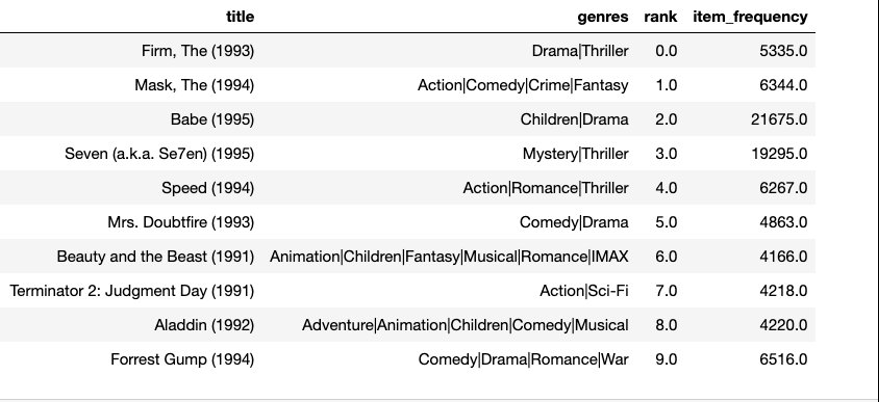
通过将《狮子王》推荐的人气折扣调整为0.4,我们可以看到电影《七人》的排名降至4.0。我们还看到,诸如《宝贝》、《美女与野兽》、《阿拉丁》和《白雪公主与七个小矮人》等儿童题材的电影尽管在数据集中的总体受欢迎程度较低,但仍获得更高的推荐排名。
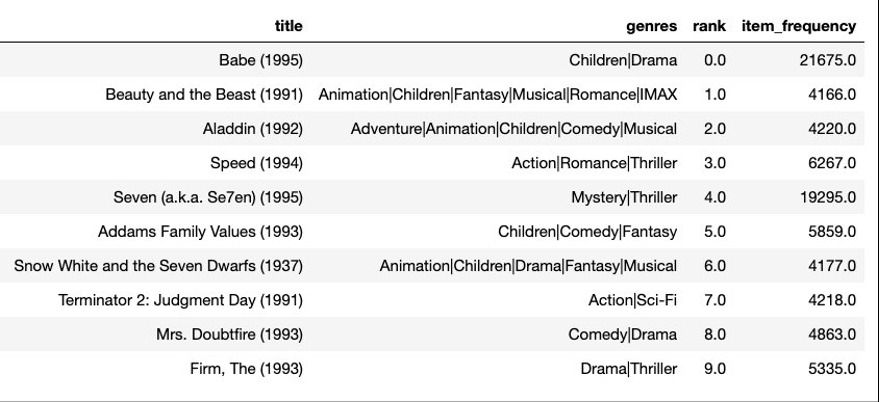
让我们来探讨另一个例子。我们使用类似物品配方来寻找与迪士尼和皮克斯 1995 年的电影《玩具总动员》(
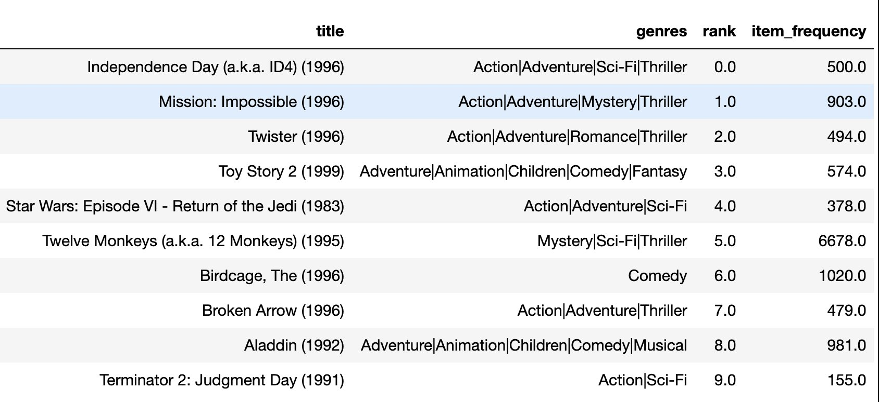
通过将《玩具总动员》推荐的人气折扣调整为0.4,我们发现不再建议在前 10 名中使用 12 只猴子的等级。我们还看到,诸如《阿拉丁》、《玩具总动员2》和《虫虫生活》等儿童题材的电影尽管在数据集中的总体受欢迎程度较低,但仍获得更高的推荐排名。
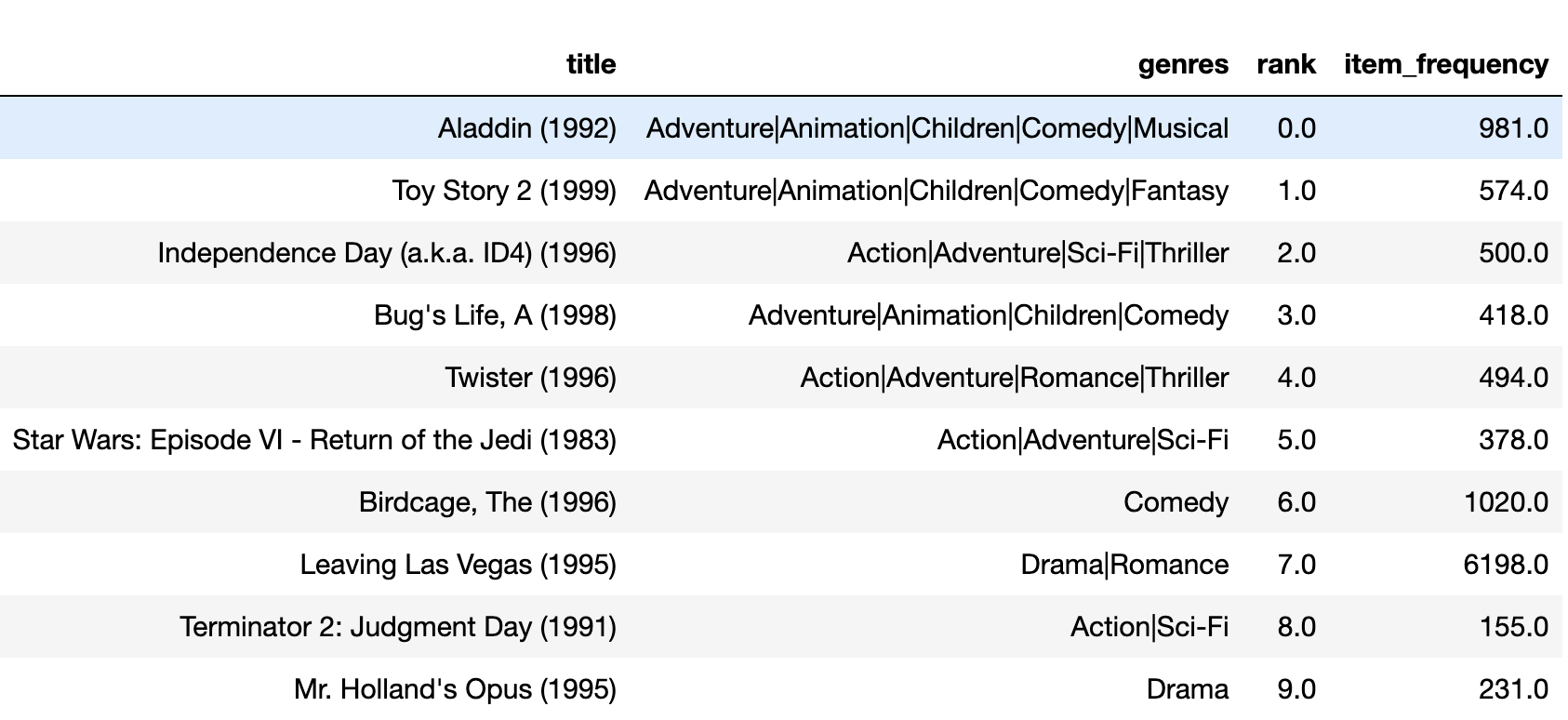
更加重视更受欢迎的内容有助于增加用户参与项目推荐的可能性。降低对受欢迎程度的强调可能会给出看似与所查询项目更相关的推荐,但在用户中可能不那么受欢迎。您可以调整对人气的重视程度,以满足特定个性化活动的业务需求。
实施人气调整
ity_discount_factor
超参数。
以下是通过 亚马逊云科技 开发工具包将人气折扣系数设置为 0.5 的示例代码:
以下屏幕截图显示了在 Amazon Personalize 主机上将人气折扣系数设置为 0.3。
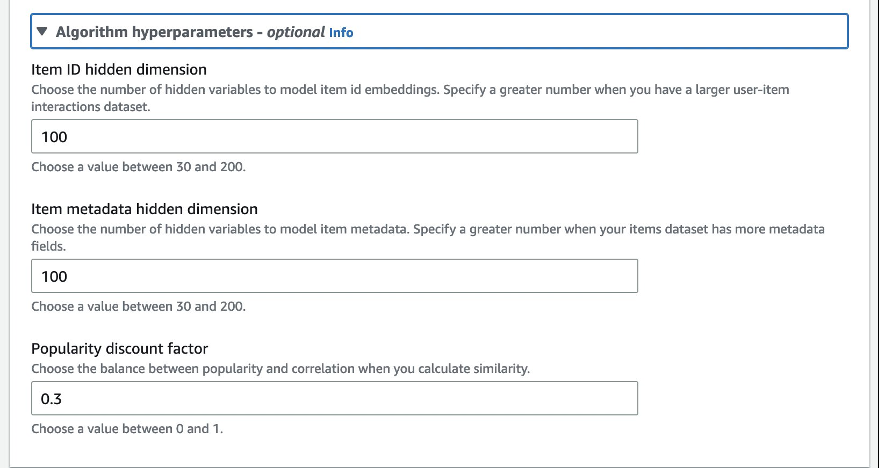
结论
通过人气调整,你现在可以进一步完善 Amazon Personalize 中的 Similar-Items 配方,以控制人气对商品推荐的影响程度。这使您可以更好地控制定义最终用户体验以及相似商品推荐中包含或排除的内容。
参考文献
[1] 麦克斯韦·哈珀和约瑟夫·康斯坦。2015。MovieLens 数据集:历史与背景。ACM 交互式智能系统 (TII) 交易 5、4、第 19 条(2015 年 12 月),19 页。
作者简介
 Julia McCombs Clark
是 Amazon Personalize 团队的高级技术产品经理。
Julia McCombs Clark
是 Amazon Personalize 团队的高级技术产品经理。
 Nihal Harish
是 Amazon Personalize 团队的软件开发工程师。
Nihal Harish
是 Amazon Personalize 团队的软件开发工程师。
 马一飞
是 亚马逊云科技 人工智能实验室的高级应用科学家,致力于推荐系统的开发。他的研究兴趣在于主动学习、顺序建模和在线决策。
马一飞
是 亚马逊云科技 人工智能实验室的高级应用科学家,致力于推荐系统的开发。他的研究兴趣在于主动学习、顺序建模和在线决策。
 布拉尼斯拉夫·克维顿 是 AW
S 人工智能实验室的首席科学家。他提出、分析和应用算法,这些算法可以逐步学习,实时运行,并随着观测值数量的增加而收敛到接近最佳的解。
布拉尼斯拉夫·克维顿 是 AW
S 人工智能实验室的首席科学家。他提出、分析和应用算法,这些算法可以逐步学习,实时运行,并随着观测值数量的增加而收敛到接近最佳的解。
*前述特定亚马逊云科技生成式人工智能相关的服务仅在亚马逊云科技海外区域可用,亚马逊云科技中国仅为帮助您发展海外业务和/或了解行业前沿技术选择推荐该服务。